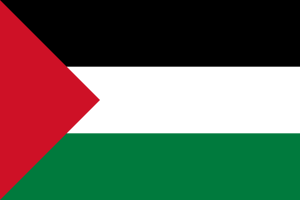Language/Hijazi-arabic/Grammar/Future-Tense
Hi Hijazi Arabic learners! 😊
In this lesson, we will learn about the future tense in Hijazi Arabic.
Introduction[edit | edit source]
The future tense is used to express actions that will happen in the future. In Hijazi Arabic, the future tense is formed by adding certain particles to the present tense conjugation of the verb.
Don't miss the chance to check out these pages as you wrap up this lesson: Give your Opinion & Adjectives.
Forming the Future Tense[edit | edit source]
To form the future tense in Hijazi Arabic, we add specific particles to the present tense conjugation of the verb. These particles are "راح" and "حتى" ("raah" and "hataa").
The particle "راح" is used to express certainty and the particle "حتى" is used to express possibility. We place the particle before the present tense conjugation to obtain the future tense.
Here are some examples:
| Hijazi Arabic | Pronunciation | English |
|---|---|---|
| راح اشرب قهوة | raah ashraab qahwa | I will drink coffee |
| راح تداومون غدا | raah tadaawmoun ghada | You will go to work tomorrow |
| حتى يوصل المطار متأخرا | hataa ywssel almutaar mutaakhiraa | He might arrive late to the airport |
Negative Future Tense[edit | edit source]
To form the negative future tense in Hijazi Arabic, we add the negative particle "ما" ("maa") before the present tense conjugation of the verb plus the future particle "راح" or "حتى".
Here are some examples:
| Hijazi Arabic | Pronunciation | English |
|---|---|---|
| ما راح اشرب قهوة | maa raah ashraab qahwa | I will not drink coffee |
| ما حتى يوصل المطار متأخرا | maa hataa ywssel almutaar mutaakhiraa | He might not arrive late to the airport |
Future Tense with Time Markers[edit | edit source]
In Hijazi Arabic, we can use time markers with the future tense. Time markers are words that indicate when the action will take place. Here are some examples:
- بكرا (bukra) = tomorrow
- بعد الغد (ba'd alghad) = the day after tomorrow
- الأسبوع القادم (al'usbou' alqaadem) = next week
Here is an example dialogue to illustrate:
- Person 1: بكرا راح اشرب قهوة. (Bukra raah ashraab qahwa.) (I will drink coffee tomorrow.)
- Person 2: أنا كمان بكرا راح أشرب قهوة. (Ana kamaan bukra raah ashraab qahwa.) (I will drink coffee tomorrow too.)
Cultural Insights[edit | edit source]
In Hijazi Arabic culture, it is common to make plans using the future tense. When making plans, Hijazi Arabic speakers often use the phrase "إنشالله" (inshallah), which means "God willing". This phrase shows respect to God and acknowledges that He is in control of the future.
Practice[edit | edit source]
To practice using the future tense in Hijazi Arabic, try making plans for tomorrow or next week using the time markers we learned. Practice with a language partner or find a native speaker on Polyglot Club and ask them any questions!
Sources[edit | edit source]
➡ If you have any questions, please ask them in the comments section below.
➡ Feel free to edit this wiki page if you think it can be improved. 😎

